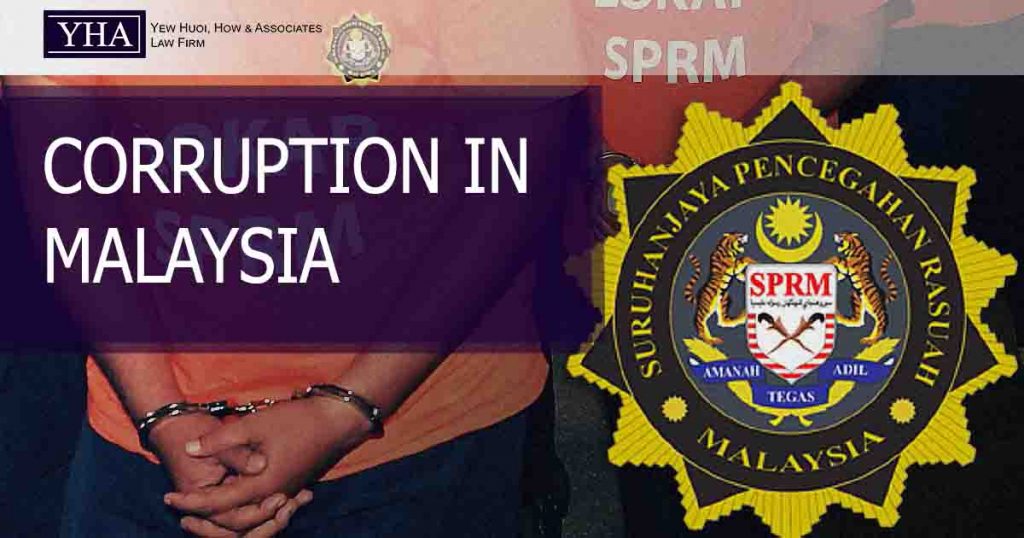In brief
- There is a saying that the love of money is the root to all evil. As a result, the vice of corruption or bribery, as an aspect of the “original sin” of the love of money, might be considered to be a root as part of a larger root of all evil.
What is corruption?
- Corruption, properly defined in broad terms and inclusively, goes from the simple offering of a bribe to the misappropriation and misuse of public funds under the disguise of authority through the procurement process. When seen in connection to the whole political and administrative framework that allows it to exist, it is a disease that finally drains and corrupts society as a whole. This can be illustrated from the 1Malaysia Development Berhad (1MDB) scandal which was a huge corruption, bribery, and money laundering affair that originated in Malaysia in 2009 but quickly spread throughout the world and was disclosed in 2015. In 2016, the US Department of Justice dubbed it the “biggest kleptocracy case to date,” describing it as “one of the world’s greatest financial scandals.”
- Malaysia has continuously placed “high” in Transparency International’s corruption index or scale (TI). The country is ranked 62nd out of 180 nations in Transparency International’s Corruption Perception Index for 2021. These statistics prove that corruption has still been ongoing in Malaysia.
How did Malaysia combat corruption?
- .The Integrity Institute of Malaysia (IIM) and an independent Malaysian Anti-Corruption Commission (MACC) were established under Abdullah’s government in 2004 and 2009, respectively. In addition, some may not know that in 2011, a scheme was created by MACC which offered cash rewards to the amount of the bribe, kickback, or graft involved. The Whistleblower Protection Act (2010) and the Witness Protection Act protect whistleblowers (2009).
Q. Let’s just say you were a civil servant and you failed to report the giving of as well as request for bribes. Can you get in trouble in these circumstances?
A. Yes, under section 25 of the Malaysian Anti-Corruption Commission (MACC) Act, you can be penalized for failing to disclose incidents of bribery to the MACC (2009).
- Moreover, not to mention, following a two-year moratorium for adjustments and familiarization, Section 17A (Amendment, 2018) of the MACC Act (2009), which imposes severe responsibility for corporate compliance, went into force on June 1, 2020. This means that if their workers or associates are involved in corrupt activities and transactions, “commercial organizations are likewise accountable and can be penalized.” If the commercial organization’s highest management or representatives are aware of the corruption perpetrated by their workers or allies, they may be judged guilty.”
- A commercial organization commits a criminal offence under Section 17A if a person linked with it delivers any gratification with the aim to gain or keep any business or benefit for the commercial organization. The crime has a stiff penalty of a fine of not less than ten times the bride’s value or RM 1 million, whichever is larger, and/or a maximum sentence of 20 years in jail.
Examples: Based on Malaysia most biggest scandal in history, this has been shown in Dato’ Sri Najib Razak case where he was sentenced to 12 years in prison and fined RM210 million by the High Court on July 28, 2020, after Judge Mohd Nazlan Mohd Ghazali found him guilty of seven charges involving SRC, including one charge of abuse of power involving Retirement Fund (Inc)’s (KWAP). RM4 billion loans to SRC, three counts of criminal breach of trust involving RM42 million, and three counts of money laundering. However, he has made an appeal to the Federal Court after decisions were made from the Court of Appeal.
Conclusion
- Corruption has come to the top of governments’ and business leaders’ priorities. Despite the fact that corruption has always been a problem, there is a growing understanding of its harmful effects on social and economic progress. Malaysia has a long history of enacting anti-corruption and anti-bribery legislation, with instances occurring over the previous four decades with no signs of stopping down. Corruption and bribery are deeply rooted in Malaysia’s political and government institutions, as evidenced by cases such as the Sabah Water Department, 1MDB, Port Klang Free Zone (PKFZ), and Immigration Department Scandal in 2018. However, the implementation of newly formulated measures such as the introduction of corporate responsibility for corruption offences, which will take effect in June, might be a watershed moment in Malaysia’s fight against corruption and bribery.

